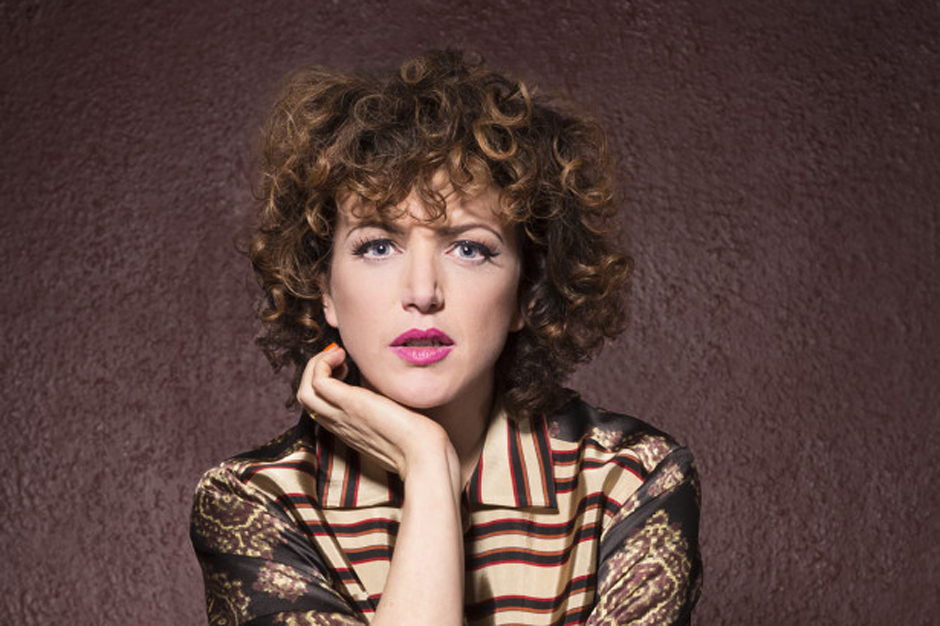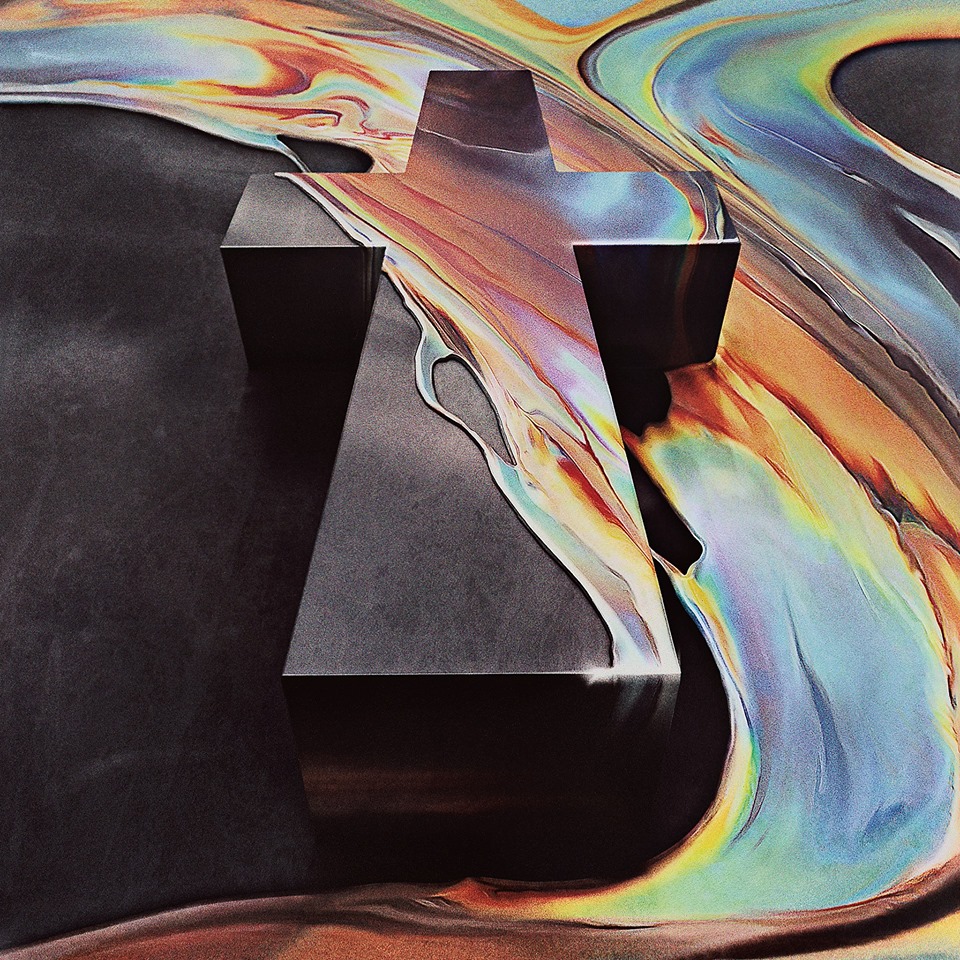While most folks spend the typical Tuesday night deciding what to cook for dinner, BBC Radio 1 DJ Annie Mac instead busies herself in the booth trying to figure out the key to something far more esoteric: What does a Tuesday night sound like?
“The immediacy of it all is so exciting,” Mac says over the phone from London. “When you’re live, people can react immediately to a record and tell you how they feel, that they had to stop in their tracks or that they burnt their dinner because they were listening to me.”
Although she first joined the prestigious broadcasting service more than a decade ago, Mac has had her most densely packed year yet in 2015, taking over former BBC host Zane Lowe’s coveted 7:00 p.m. slot — on his recommendation — once he departed for Apple Music’s Beats 1 pilot program in late spring. The Irish on-air personality has long been an influencer in the U.K. With incredibly precise and opinionated taste and a series of electronic shows on Radio 1 since 2004, she’s largely responsible for the mainstream breakthroughs of dance acts like Disclosure, Rudimental, and Duke Dumont, giving them and countless others their first major nationwide spotlight on her show. The 37-year-old has since taken her talent on the road, touring her yearly compilation series — the regularly iTunes chart-topping Annie Mac Presents — at marquee locales like thronged Ibiza beaches and this year’s Coachella.
Now the mother of one is balancing her Monday through Thursday gig, an abundance of special guests (Sam Smith, Coldplay’s Chris Martin, and Jamie xx are among those who’ve shown up this month alone), and a Friday evening dance and electronic BBC slot. With all of that on her plate — and living in a world in which male music execs like Jimmy Iovine still fence women out — the DJ manages to make the BBC just as relevant as its more frequently discussed, Apple-owned counterpart in the States. Here’s how.
Now that you’ve been in your new slot for half a year, have you learned anything about your audience that’s caused you to adjust your show?
The shows I used to do — Fridays and Sundays — were very much mood-matching. I would be matching Friday night, which is a really euphoric, giddy mood. Sunday used to be a show that was very downbeat, people just being exhausted, hung-over, and knackered up from the weekend. That was more soothing and soft around the edges. What’s really interesting in this midweek show is: What does a Tuesday sound like? It’s hard to soundtrack these shows because there isn’t as much of an identity around the slots that I have. It’s really freeing. The people who know and listen to the show are really open-minded, especially in the U.K. Because the BBC is a national treasure and a staple, people know what to expect; they know they’re going to hear something new, and they’re open to it. People really relate to that. They react to something challenging. It’s that weird transitional period between day and night — people are on the move, getting home, decompressing, and it feels like they’re really listening.
How exactly did you decide to pursue a career as a DJ?
For me the focus was always radio. I went to university and I discovered BBC Radio 1 at the same time I was discovering these crazy specialist late-night radio shows playing this wonderful, weird music. I also discovered club culture, and was going clubbing every single weekend — eventually I ended up working at this nightclub that I was going to. I fell in love with electronic music when I was 18 or 19; then I moved to London, and several years later managed to get a job at Radio 1. I always had decks [DJ equipment], [which I bought when] I was in university. I played parties, and little places in Camden. I never really got paid professionally to DJ, but I played a bit of everything. It wasn’t until I got handed an electronic music show on Radio 1 that the gig offers started coming in and I was put in the position of playing in front of big crowds and being absolutely terrified.
Is university also where you picked up all of your musical proclivities?
It was when I was about 15 or 16 that I really had an epiphany. There were a few albums that really moved me, things like Blue Lines by Massive Attack, Portishead’s Dummy, Leftfield’s Leftism. I had never heard techno before; it blew my mind. Then Moloko was the first band I really kind of fell in love with as a fan-girl. I went to see Róisín Murphy at a little pub in Dublin.
Since you’ve taken over Zane’s slot, have you found yourself deviating from him, or have you implemented anything that he taught you?
He was the one who actually said, “Just do you. They’ve asked you to do this for a reason.” Zane is hugely responsible for me being the DJ that I am today. When I started at Radio 1 as an assistant producer, he came in, and it was the most exciting thing in the world. I’ll never forget the feeling, standing opposite him in this radio studio. It was electric. He was a complete perfectionist. He really beat himself up when he made mistakes and he really cared. He massively influenced me in the way he uses the technology around him as an instrument within the broadcasting. He has a music studio, he has a huge background in production, and he’s looking at the radio show as an instrument and how he can use that to enhance the sonics of the show: He puts reverb on the end of his tracks. He stands up and jumps around and you can hear it and feel it. I stand up now. It feels like the only way to do it.
Have you felt total creative freedom with the BBC? It’s not always that way for radio hosts in the U.S.
When I started touring in America, everyone would say, “You’re so f**king lucky to have the BBC.” It’s a novelty thing to be able to turn a public radio station on and hear music like that. Traveling and seeing what the rest of the world has to offer from a radio standpoint was really eye-opening for me. It makes you appreciate what you have so much more. It’s the dream situation, being given that trust and freedom to express yourself through music. When you get to play something f**king bonkers and weird like that Sam Gellaitry track… It’s totally out of nowhere, some guy on SoundCloud who’s 18 put it up, and now we’re playing it on national radio. People are loving it all up and down the country. That’s why you do your job, to be that conduit. To be able to provide people with the kind of joy that you feel when you hear something new that you can connect with… It’s amazing.
https://youtube.com/watch?v=ynCf7aHUO0c
Are there any trends in music that you think are already on their way out?
I think that there’s kind of a landfill situation at the moment with pop-house, house records with sort of a pop-hop on top. That could be partially my fault. [Laughs.] I started with your Disclosures and your Duke Dumonts. A lot of people tried to do what they did, but didn’t do it as well. Now it’s kind of a go-to thing in major-label culture that’s become really ubiquitous. I remember when Ne-Yo came out with this tune and it was 4/4; it was so weird to hear an R&B star on a 4/4 club record. Then it became a thing: David Guetta basically got everyone in hip-hop and R&B to jump on house records. Then Calvin Harris came along, and that was a thing. Now it’s filtered down and it’s just become normal in pop music to have this 4/4 bass on the record. I think that might stop and I think that’s probably a good thing. It’s good to switch things up. Music comes in cycles. I think guitarists will come back, and I’m kind of hoping they do. I’m ready.
How else have you seen music change during your BBC years?
It takes nothing for a huge body of work that could’ve taken years to make to be leaked and consumed and finished within a month. That must be terrifying for an artist. The amount of time it takes to make music isn’t quicker, but it’s consumed quite ruthlessly. Artists are starting to figure out that putting out 12 to 15 tracks is not gonna do much for them, especially with electronic music. I’ve had conversations with two DJs this year, Calvin Harris and Duke Dumont, who both say the same thing: It’s not about albums, it’s about putting out records if you want to stay relevant. It’s not about going away for a year, making an album and coming back. It’s about staying in the scene. Duke Dumont made a deliberate decision to not put an album out and put out a series of EPs instead because he said the music is going to be wasted. It’s consumed better in small doses.
You wrote what I thought was a really thoughtful piece in 2014 about journalists asking you about being a female DJ, yet I still see interviews that have asked you variations of those same questions.
I feel like I’ve been apologizing to journalists ever since. [Laughs.]
How have you learned to handle that line of questioning?
It’s more frustrating [than exhausting]. I feel like the guys who ask me those questions haven’t thought about what it’s like to answer them from my perspective. It’s not deliberately being malicious or ignorant, they’re just not thinking. And why would they think? They don’t have to think about what it’s like. It’s frustrating to be asked questions over and over again because I’m looking forward to it not even being an issue, to it not being unequal and there being as many female DJs as male. I think that’ll be a good day.





